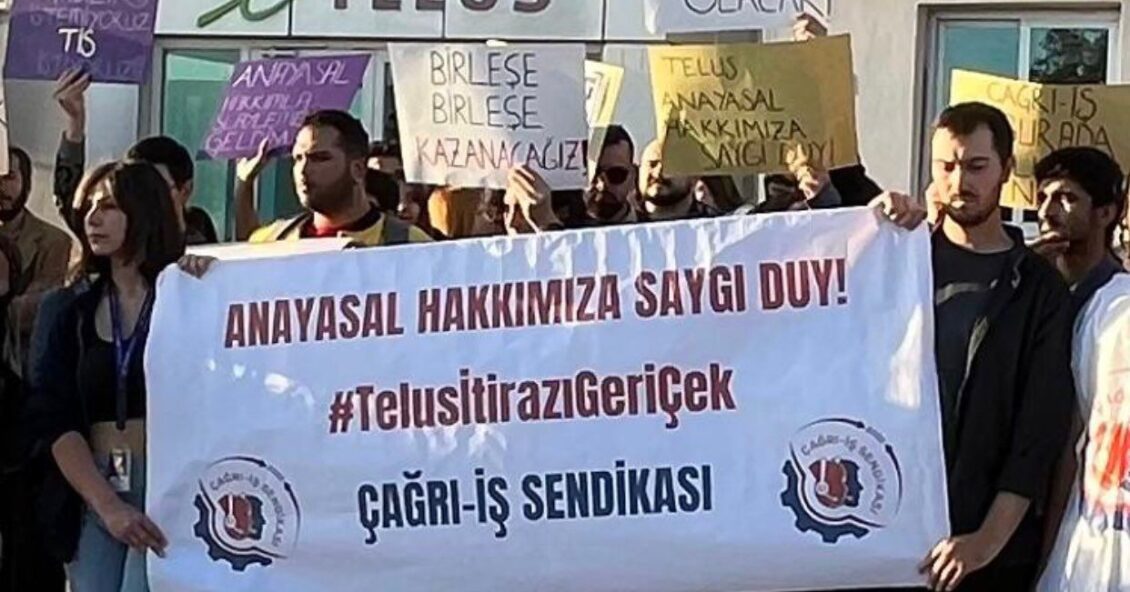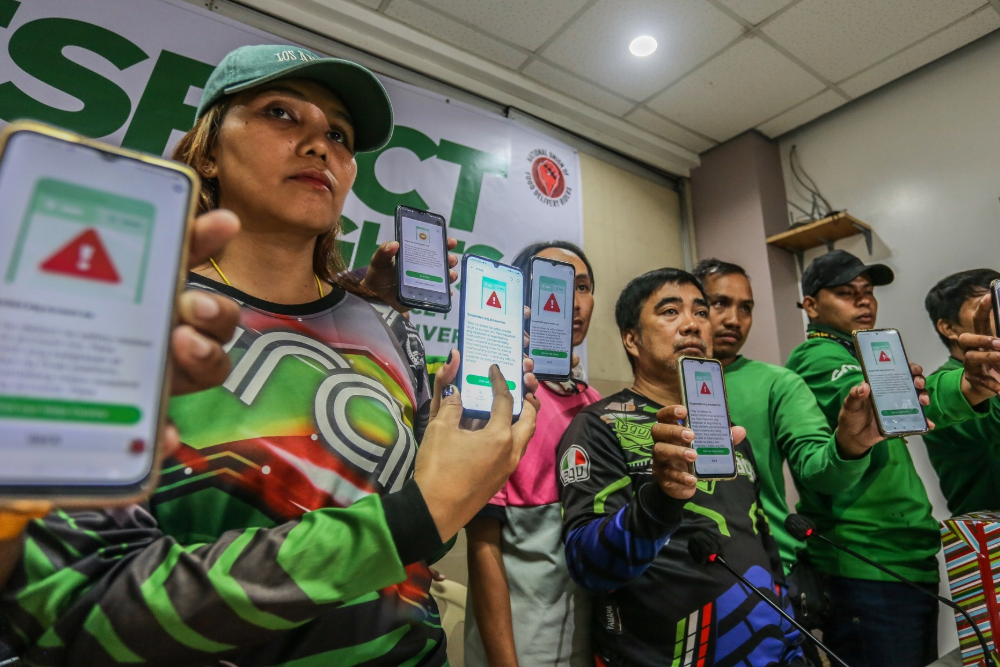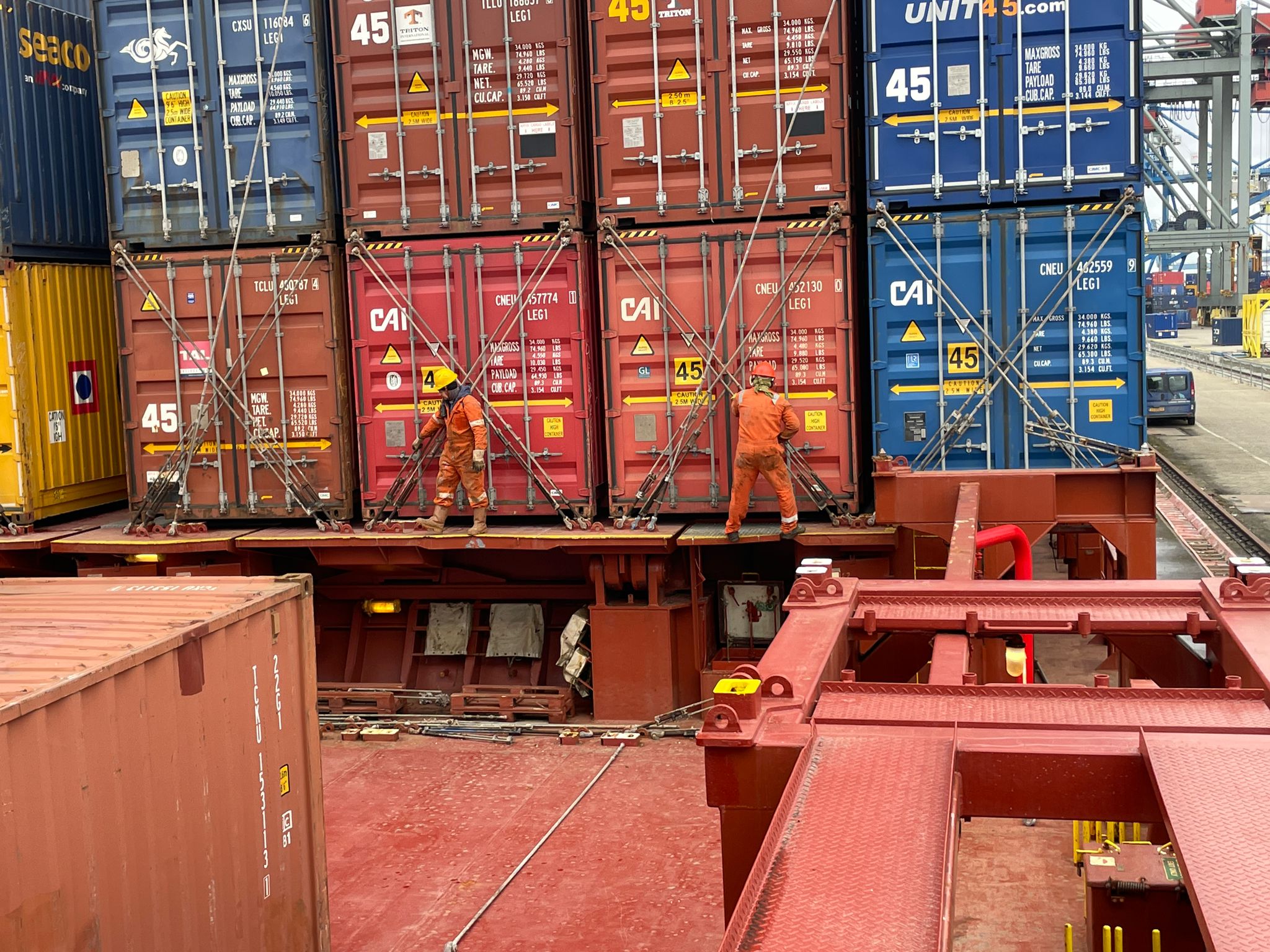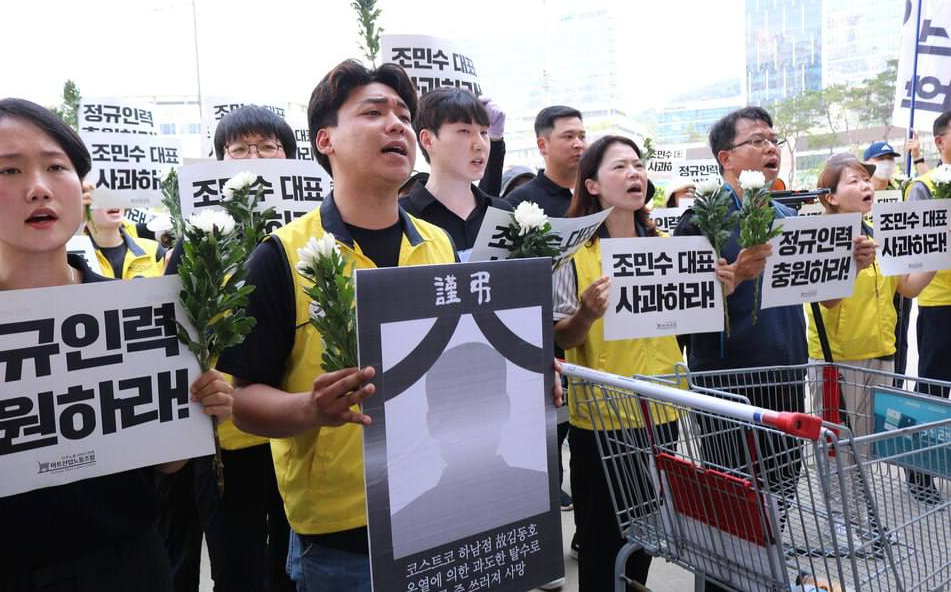
Este Día Internacional de la Memoria de los Trabajadores28 de abril, UNI Global Union se une a los sindicatos de todo el mundo para exigir medidas urgentes contra la crisis climática.
A medida que suben las temperaturas, también “Riesgos climáticos para los trabajadoresel lema de la CSI para este día de recuerdo y compromiso.
La emergencia climática mundial ha creado nuevos peligros y agravado los ya existentes para los trabajadores. Como en tantas otras cuestiones de salud y seguridad en el trabajo, los sindicatos y la negociación colectiva son soluciones necesarias.
“La crisis climática está matando a los trabajadores, y los sindicatos están en primera línea para hacer que los empleos – y las comunidades – sean más seguros”, dijo la Secretaria General de UNI Christy Hoffman. “Los sindicatos contraatacan a los empleadores que intensifican cruelmente los objetivos incluso con un calor abrasador. Aseguramos las pausas obligatorias, los equipos vitales y las protecciones necesarias que salvan vidas. Abogamos por una transición justa hacia una economía sostenible, que no deje a ningún trabajador atrás.”
A nuevo informe de la OIT concluye que un número “asombroso” de trabajadores (2.400 millones, es decir, más del 70% de la población activa mundial) se enfrentará a riesgos para la salud relacionados con el cambio climático, como el estrés térmico, el cáncer, las enfermedades cardiovasculares, las enfermedades respiratorias, las disfunciones renales y las afecciones mentales.
Aunque con razón se presta mucha atención a sectores como la construcción, la minería y la agricultura, los trabajadores de los servicios también se enfrentan a estos riesgos.
Este fin de semana, la UNI afiliará al Federación Coreana de Sindicatos de Trabajadores de Servicios (KFSU) hará huelga en Costco para protestar por las condiciones laborales injustas e inseguras en los establecimientos de la multinacional estadounidense en ese país. La huelga es la segunda desde que en junio de 2023 muriera un empleado en el trabajo tras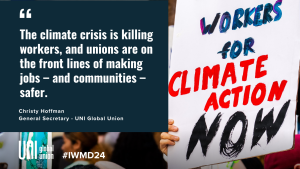 exposición al calor extremo.
exposición al calor extremo.
El fallecido, un hombre de 29 años sin afecciones crónicas, trabajaba como cajero en la caja. En el momento de su muerte, se encargaba de los aparcamientos, los carros y la gestión del aparcamiento.
Murió durante una ola de calor, y el sindicato afirma que la empresa no proporcionó instalaciones de aire acondicionado ni termómetros independientes para los trabajadores del aparcamiento. Además, la empresa obligaba a los empleados a permanecer de pie durante todo el horario laboral, sin asientos ni zonas de descanso disponibles.
El presidente de la KFSU, Kang Kyu-Hyok, declaró entonces: “Condenamos enérgicamente a Costco Korea por no contratar la mano de obra necesaria, exprimir a los trabajadores para reducir costes y no proporcionar a tiempo lo esencial para la vida y la seguridad de los trabajadores. Costco debe tomar medidas para evitar que [este tipo de tragedia] vuelva a ocurrir”.
Las afiliadas de comercio de la región de Asia y el Pacífico de UNI aprobaron una resolución en apoyo de la huelga del 27 de abril en la que se pedía a a Costco Corea y al Director General Cho Min-Soo que acepten la responsabilidad “por la muerte evitable de su trabajador como accidente laboral” y a la empresa que negocie las condiciones en la tienda.
Los trabajadores de Amazon de todo el mundo tienen reivindicaciones similares. Por ejemplo, uno de los almacenes de la empresa en el sur de California alcanzó temperaturas de 106F (41C) el verano pasado, y los empleados tuvieron que trabajar a velocidades brutales para cumplir sus cuotas de producción.En el Reino Unido, el sindicato GMB ha hecho de la seguridad uno de los pilares de su campaña de sindicalización en Amazon, y ahora los trabajadores se encuentran en una lucha histórica por el reconocimiento sindical. lucha histórica por el reconocimiento sindical.
Pero no se trata sólo de los trabajadores del comercio. Los riesgos climáticos afectan a todos los sectores de UNI.
La OIT identifica a los deportistas como un grupo muy expuesto a temperaturas extremas. Por ello, sindicatos de jugadores como FIFPRO se están organizando para conseguir una mayor protección contra los trastornos inducidos por el estrés térmico.
En Brasil, el sindicato gráfico y de embalaje SINDICRIP ayudó a los trabajadores de WestRock a superar el aumento de las temperaturas organizándose en torno a la mejora del acceso al agua en el trabajo. Mediante una muestra de interés colectivo, los trabajadores consiguieron que la empresa se sentara a la mesa para conseguir más dispensadores de agua.
Los vigilantes de seguridad trabajan a menudo en el exterior y se enfrentan a las inclemencias del tiempo, como el calor hirviente, el frío extremo y una mayor exposición a los rayos UV cancerígenos. Los sindicatos están tomando medidas. Con el apoyo de UNI, el Sindicato de Trabajadores de Seguridad Gujarati de la India hizo campaña y consiguió agua potable, un segundo uniforme y refugio para ayudar a combatir temperaturas que alcanzan los 113F (45C). UNI también apoya a nuestra afiliada en Nepal, el Sindicato deTrabajadoresde Seguridad de Nepalpara conseguir abrigos de invierno adecuados para trabajar en el frío glacial.
Los empleados de correos se enfrentan a las consecuencias catastróficas del cambio climático. De hecho, UNI Correos y Logística identifica la crisis climática como uno de los mayores riesgos para los trabajadores postales.
Además de los peligros directos de trabajar en condiciones meteorológicas extremas, los gobiernos suelen utilizar a los trabajadores postales y la infraestructura postal en épocas de catástrofe para apoyar a las personas afectadas y ayudar a las organizaciones. La inundaciones de 2022 en Pakistán es un buen ejemplo.
Dado el daño que el clima extremo causa a los trabajadores, no es de extrañar que los sindicatos postales se hagan oír cada vez más no sólo en materia de protección del lugar de trabajo, sino también de política climática. UNI Correos y Logística ha propuesto un nuevo acuerdo ecológico para correos, y afiliadas como CUPW en Canadá están tomando la iniciativa de presionar para que el correo sea sostenible.
El Secretario General de la CSI, Luc Triangle declaró: “La crisis climática ya no es una amenaza lejana; es un peligro presente para los trabajadores de todo el mundo. Es imperativo que exijamos políticas y prácticas sólidas para proteger a nuestros trabajadores de los peligrosos impactos del cambio climático. Nuestro llamamiento a la acción es claro: debemos integrar las evaluaciones del riesgo climático y la preparación para emergencias en nuestras normas de seguridad y salud en el trabajo.”

